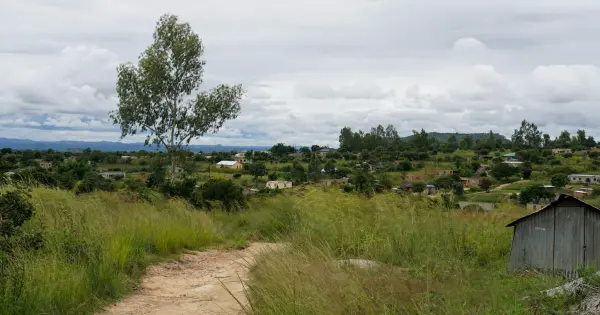Boundary walls between neighbouring properties are key to defining property lines and ensuring the privacy and security of your property in Zimbabwe. Yet, boundary walls often also form the basis of heated disputes between neighbours, particularly when not done correctly.
This article will highlight some of the main aspects to consider when building or modifying a boundary wall according to Zimbabwean laws and regulations.
Getting Neighbour Consent
Constructing a boundary wall requires the consent and cooperation of both neighbouring property owners in Zimbabwe. The courts have emphasised the importance of getting consent even though property owners have the right to build walls. So it's crucial to discuss plans with your neighbour first before starting any building work. This will help avoid potential disputes down the line.
Complying with Municipal By-Laws
Back in 2019 Harare City Council had to issue a warning to residents of Harare about security walls.
Homeowners who built perimeter walls around their properties without approval plans are advised to regularise the construction of security walls
Any new boundary walls need to comply with municipal by-laws in your area. These laws may specify things like maximum height, distance from the boundary and aesthetics. The goal is to ensure safety, maintain neighbourhood character and prevent encroaching on public land. Make sure to check the latest versions of any relevant by-laws before designing and building.
Getting Building Plan Approval
You may need to get council approval for building plans before constructing a new boundary wall in Zimbabwe. Local by-laws outline if and when this is required. Building without necessary approvals can lead to penalties, fines or even demolition orders. So submit plans and get consent to avoid potential issues.
Using Quality Construction Materials
It's important to use good quality and long-lasting materials when building boundary walls in Zimbabwe. Brick, precast concrete and steel posts for fencing are ideal materials. Avoid cheaper wood or makeshift materials that deteriorate quickly in the weather and compromise security. Investing in quality construction will pay off long-term.
Measuring the Boundary Line
Accurately define your property boundary line before building any new wall. This may require getting a professional land surveyor involved, especially if the boundary is unclear. Building a wall in the wrong location can lead to disputes with your neighbour and potential legal issues. Better to spend time on proper measurement first.
Considering Electrified Fencing?
Electrified fencing on top of a brick wall can boost security in Zimbabwe. It provides an effective deterrent against intruders. But any electrified fencing needs to meet standards for safety and be installed properly by qualified professionals. Notify neighbours and local authorities too. Maintenance is also key to ensuring the system keeps working over time.
You should also consider the likely effects of extended load-shedding on the security of your wall. Zimbabwe has often experienced load-shedding lasting as long as 19 hours due to climate change and ageing power generation equipment. In that case you might want to consider solar instead and if you cannot afford this you can just go with razor wire instead.
Allowing for Drainage and Access
When designing a new boundary wall, allow for proper drainage around the structure and access to maintain it in the future. Include weep holes in brick walls so water can drain away from the foundations. And leave enough space between the wall and any buildings for maintenance access. This prevents water damage and makes it easier to repair the wall if needed.
Avoiding Tree Damage
Take care to avoid damaging tree roots or branches when building or modifying boundary walls in Zimbabwe. Seek professional advice on the best construction methods and design to prevent harming important trees on the boundary line. Tree damage can reduce property values and lead to disputes.
Checking on Insurance
Contact your insurer when building or modifying a boundary wall to ensure you have appropriate cover. Boundary walls may impact your home insurance risk profile. And you may need specialised cover to protect new walls from storm, flood and other damage. Review policy terms and notify your insurer about changes.
Seeking Legal Advice
If boundary disputes arise during planning or building that you can't resolve amicably with your neighbour, seek professional legal advice. A lawyer can help interpret by-laws and property laws in Zimbabwe and provide guidance on the best course of action. Don't let a dispute drag on without resolution.
Constructing a boundary wall in Zimbabwe involves careful planning, good neighbour relations and compliance with regulations. But it’s a worthwhile investment to enhance privacy and security if done properly. These tips are meant to help you avoid potential pitfalls and complete a boundary wall project smoothly from start to finish.




